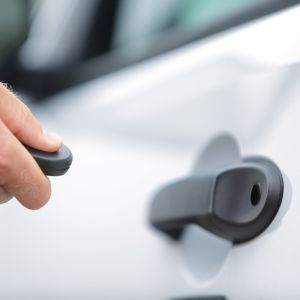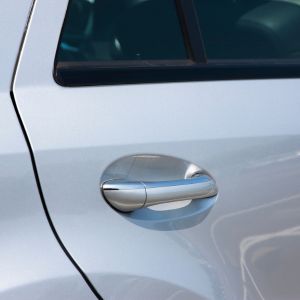Your car door locks play a crucial role in ensuring the security of your vehicle, but they are often overlooked when it comes to regular maintenance. Many car owners tend to focus on the engine, tires, and other prominent components, neglecting the small yet vital parts like door locks.
We’ll explore the reasons why lubricating your car door locks is essential and how it can prevent inconveniences like lock jams and key struggles. By the end of this article, you’ll have a clear understanding of the benefits and the step-by-step process of lubricating your car door locks.
The Importance of Lubricating Car Door Locks

Car door locks, like any mechanical component, are susceptible to wear and tear over time. Exposure to the elements, dust, and debris can lead to the accumulation of grime within the lock mechanism. Without proper lubrication, this buildup can hinder the smooth operation of the lock, making it difficult to insert or turn the key.
Regularly lubricating your car door locks can prevent this issue, ensuring that the lock functions seamlessly every time you need to access your vehicle. Additionally, well-lubricated locks are less prone to rust, extending the overall lifespan of this critical security feature.
Many people do not know how or why they should lubricate their car door locks

Lubricating your car door locks is important for several reasons. Most locks are made of metal, and metal can corrode over time. This corrosion can cause the lock to stick, or even to break. Lubricating the lock will help to prevent this corrosion. Another reason to lubricate your car door locks is to prevent freezing. In cold weather, moisture can condense on the metal and freeze, making the lock difficult or even impossible to open. By lubricating the lock, you can help to prevent this moisture from condensing.
Finally, lubricating your car door locks can make them easier to use. A sticky or frozen lock can be frustrating to deal with. By keeping the lock lubricated, you can help to ensure that it works smoothly and effortlessly. There are a few different ways that you can lubricate your car door locks. You can use a commercial lubricant, such as WD-40, or you can use a household oil, such as vegetable oil or cooking oil.
Whichever lubricant you choose, be sure to apply it sparingly. Too much lubricant can attract dirt and debris, which can actually make the lock harder to use. To lubricate your car door locks, start by applying a small amount of lubricant to the key. Insert the key into the lock and turn it a few times to work the lubricant into the mechanism. Then, remove the key and wipe away any excess lubricant. Repeat this process every few months to keep your locks in good condition.
Lubricating your car door locks can help prevent rust and corrosion

Lubricating your car door locks can help prevent rust and corrosion. Rust and corrosion can cause your door locks to stick, making it difficult to open and close your doors. Lubricating your door locks will help keep them working smoothly. There are several different types of lubricants that you can use on your door locks. WD-40 is a popular choice, as it can help to prevent rust and corrosion. You can also use a silicone spray, which will help to lubricate and protect your locks. Just be sure to avoid using any lubricant that is petroleum-based, as this can damage your locks.
To lubricate your door locks, simply spray a small amount of lubricant onto the lock. Be sure to get the lubricant into all of the nooks and crannies, as this will help to prevent rust and corrosion. Once you have lubricated the lock, you can move on to the next one. It is important to lubricate your door locks on a regular basis, as this will help to keep them working properly. Rust and corrosion can build up over time, so it is important to lubricate your locks regularly to prevent these issues.
If you find that your door locks are sticking or not working properly, it is important to take action right away. Lubricating your locks is a simple and easy way to fix these problems. By taking the time to lubricate your locks, you can help to extend their lifespan and keep them working properly.
It can also help to keep your locks from freezing in the winter
If you live in an area where it gets cold in the winter, then you know how frustrating it can be to have your car door locks freeze. Not only is it a pain to try to unlock your door when your locks are frozen, but it can also be dangerous if you’re trying to escape from a car that’s on fire or being submerged in water. Fortunately, there’s a simple solution to this problem: lubricate your car door locks. By lubricating your locks, you can prevent them from freezing up and making it difficult (or impossible) to unlock your doors.
There are a few different ways that you can lubricate your door locks. One method is to use a lubricant spray. You can find these at most hardware stores or online. Just spray the lubricant into the keyhole and then work the key in and out a few times. Another option is to use a lubricating gel. These can be found at most auto parts stores. Just apply a small amount of gel to the key and insert it into the lock.
Then, turn the key back and forth a few times. Whichever method you choose, be sure to use a lubricant that is designed for use on door locks. Some lubricants, such as WD-40, can actually damage the locks and make them more likely to freeze. If you lubricate your locks regularly, you’ll never have to worry about them freezing up and causing you problems.
How to Lubricate Your Car Door Locks: A Step-by-Step Guide
Lubricating your car door locks is a straightforward process that can be done with minimal effort. Here’s a step-by-step guide to help you maintain the functionality of your locks:
- Gather the Necessary Supplies: To lubricate your car door locks, you’ll need a lubricant specifically designed for locks, a thin tube for precise application, and a clean cloth.
- Identify the Lock Points: Locate the key entry point and any other moving parts on the door lock mechanism.
- Clean the Lock: Use a cloth to remove any visible dirt or debris from the lock. This ensures that the lubricant can penetrate the lock mechanism effectively.
- Apply the Lubricant: Using the thin tube, apply the lock lubricant to the key entry point and any moving parts. Be sure to follow the product’s instructions for the proper amount.
- Insert and Turn the Key: After applying the lubricant, insert and turn the key several times to ensure even distribution of the lubricant within the lock mechanism.
- Wipe Excess Lubricant: Use the cloth to wipe away any excess lubricant from the lock. This helps prevent attracting dirt and debris in the future.
FAQs About Lubricate Your Car Door Locks
How often should I lubricate my car door locks?
It’s recommended to lubricate your car door locks at least once a year, or more frequently if you live in an area with harsh weather conditions.
Can I use any lubricant for my car door locks?
It’s best to use a lubricant specifically designed for locks to ensure proper function and avoid damage.
What if my car door lock is already jammed?
If your door lock is jammed, it’s advisable to consult a professional locksmith to avoid causing further damage.
Conclusion
The simple act of lubricating your car door locks can make a significant difference in ensuring the longevity and effectiveness of this crucial component. By taking a few minutes for this routine maintenance task, you can prevent lock jams, enhance security, and ultimately save yourself from the frustration of struggling with a stubborn key. Make door lock lubrication a part of your regular car maintenance routine, and enjoy the peace of mind that comes with smooth and hassle-free vehicle access.

